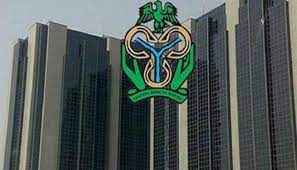In its first Monetary Policy Committee (MPC) meeting under the Tinubu administration, the Central Bank of Nigeria (CBN) has opted to increase the benchmark lending rate by 25 basis points, bringing it to 18.75 percent from the previous rate of 18.5 percent. The move is seen as an aggressive measure taken by the CBN to combat the rising inflationary pressure in the country. The decision was announced by the acting CBN governor, Folashodun Shonubi, following the conclusion of the MPC meeting that commenced on Monday.
The MPC meeting was closely watched by various sections of the media, with some considering it a litmus test of the CBN’s independence under the new President. There were concerns that acting CBN Governor Folashodun Shonubi might have been influenced to maintain rates stability to secure his appointment on a permanent basis. However, the rate hike indicates the CBN’s commitment to address inflationary challenges in the country.
Under the previous CBN governor, Godwin Emefiele, the apex bank was criticized for being perceived as subservient to the government’s executive arm, leading to Emefiele’s tenure extension. Despite this, towards the end of the Buhari administration, Emefiele raised rates twice in response to inflationary pressures, which remained persistent even after years of seeming indifference. While some experts had predicted a 100 basis points hike, the 25 basis points increase was ultimately decided upon by the MPC.
President Bola Tinubu, in just 58 days since taking office, has already fulfilled campaign promises to end fuel subsidies and unify the country’s exchange rates. However, inflation remains a significant challenge, with headline inflation reaching 22.79% in July. Addressing this issue requires more than just raising the Monetary Policy Rate (MPR), as experts suggest that Nigeria’s inflation cannot be solely resolved by this measure.
Notable figures from the business sector have expressed their concerns regarding the impact of the rate hike. George Onafowokan, CEO of Coleman wires and Cables, pointed out that continuous rate increases affect manufacturing businesses, leading to increased costs for end-users. He questioned the need for further rate hikes, especially when the government’s treasury bill rates are relatively low at 5.94%.
Jolomi Odonghanro, the Head of Research and Strategy at Cordros Securities Limited, emphasized that higher interest rates affect consumption and price stability but have not been effectively connected to the financial market. He urged the MPC to realign the market so that the MPR would have a more comprehensive impact on both the real sector and the financial market.
The acting CBN governor defended the rate hike, stating that it aims to address inflation and stabilize foreign exchange rates. He assured that the CBN would intervene in the foreign exchange market if necessary to maintain stability.
The impact of the rate hike leaves Nigerians facing the challenge of tighter credit conditions, which can make borrowing for small businesses more difficult. Unity Bank’s experience serves as an example, as the bank’s head of external communications and media relations attributed their poor financial health to the continuous rise in interest rates and a high inflationary environment.
In conclusion, the CBN’s decision to raise the benchmark lending rate by 25 basis points is a significant step in the Tinubu administration’s efforts to tackle inflationary pressures. However, experts argue that additional measures may be required to address Nigeria’s rising inflation effectively. As the country strives to stabilize its economy, striking the right balance between curbing inflation and promoting economic growth will remain a critical challenge for policymakers.










